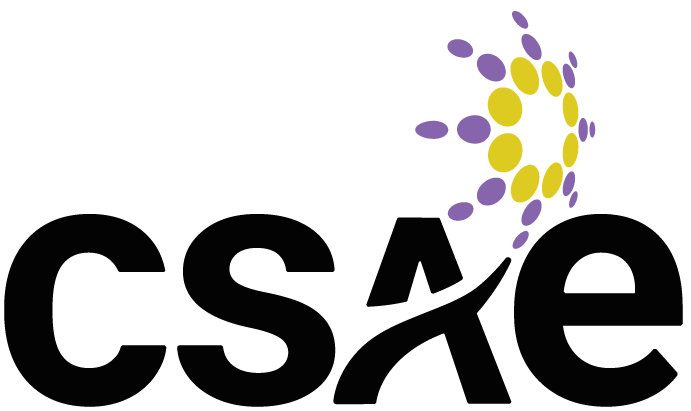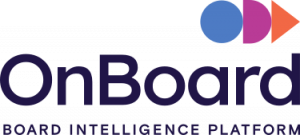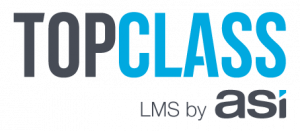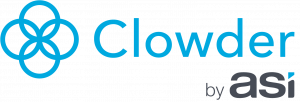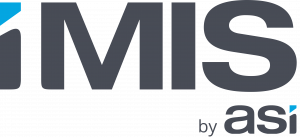CAE® Program Description
The CAE® is an internationally recognized designation built on the five competencies for association executives. These are the essential skills of efficient and effective not-for-profit management. Employers, boards and key stakeholders acknowledge those with CAE® designations as competent, experienced, and practiced not-for-profit professionals.
In 2024, CSAE introduced a refreshed, redesigned and re-organized learning pathway for the CAE designation. The restructured program is organized around the five competencies for association executives.
The five courses are CAE Optimize Governance, CAE Establish Direction, CAE Lead People, CAE Manage Operations and CAE Deliver Value. Each is delivered online over a period of 12 weeks. The first course in the new program will be offered in April 2024, with the remaining courses launching in 2025 and 2026.
The CAE designation will be given to CSAE members who complete all five courses (or demonstrate equivalent prior learning) and a capstone project.
The courses can be taken independently, in any order, and each one comes with a micro-credential. Those who are not ready to pursue the CAE designation can take individual courses based on their learning and development needs.
The original program is being phased out between now and 2027. The final intake for CAE 100 is in the Fall of 2024. Students in the original program have until 2027 to complete it and achieve the CAE designation.
Program Delivery
All courses and the exam for the CAE® Program are offered in a flexible fully online format. The CAE® Program does not require any travel or in person sessions, although students have the opportunity to collaborate with peers and instructors through discussion board forums. Students are expected to have reliable access to an internet connection and computer.
Program Time Frame
The entire program can be completed in as little as 20 months- taking one course at a time. Students in the restructured program have a maximum of five (5) years to complete the program and pass the exam. Exceptions will be handled on a case by case basis.
In 2024, CSAE began phasing out the original program, which consists of CAE 100 to CAE 500 plus a final exam. The final intake for this program will be in Fall 2024, and students in this program have until August 2027 to complete the program.
Program Structure
In 2024, CSAE introduced a refreshed, redesigned and re-organized learning pathway for the CAE designation. The restructured program is organized around the five competencies for association executives. It is comprised of five online courses, each of which delivers a micro-credential upon completion. CSAE members who successfully complete all courses and a capstone project will achieve the CAE designation. Prior Learning Assessment and Recognition is available.
CAE Optimize Governance
CAE Establish Direction
CAE Lead People
CAE Manage Operations
CAE Deliver Value
Capstone project
In 2024, CSAE began phasing out the original program, which consists of CAE 100 to CAE 500 plus a final exam. The final intake for this program will be in Fall 2024, and students in this program have until August 2027 to complete the program.
Registration
Registration for courses and the capstone (or final exam in the original program) is available online up to three months before the course or final exam start date.
Prior Learning Assessment Recognition (PLAR)
Candidates in the restructured program may choose to apply for credit towards CAE Optimize Governance, CAE Establish Direction, CAE Lead People, CAE Manage Operations and CAE Deliver Value. All candidates in the restructured program must complete the capstone project to achieve the CAE designation.
Candidates in the original program may choose to apply for credit towards CAE 100, 200, 300, and/or 400. All candidates in the original program must take CAE 500 and sit for the exam no later than August 2027 to achieve the CAE designation.
Deferring a Course
Students who discover they are unable to complete a course after the last refund date are able to defer their enrolment to the following term up until the due date of the first assignment. Deferring enrolment allows the student to participate in the following term for a fraction of the full tuition.
Deferral Guidelines
- Students may only defer two times during the program
- Deferrals must be used the subsequent term
- Payment of the deferral fee is due in full upon request
- Students will automatically be enrolled for the next term
- Completed course work may not be transferred
- Deferrals must be requested by submission of a deferral form.
Deferral Dates
Students have the option to defer a course up until the due date of the midterm assignment.
Appeals
Appealing a Grade
Students who feel they have been graded unfairly have the opportunity to contest the assigned grade via the appeals process.
Appeals Guidelines
- Students must complete an appeal form and include a description of why they are appealing
- A sliding scale of fees may be applied depending on the item to be reassessed; these fees pay for an instructor to reassess the work
Appeals Dates
- Appeals are assessed on a rolling basis
- Appeals are processed within 21 business days
- Students will be notified within 2 business days of the response.
Dropping a Course
Up until 12:00 pm EST the second Friday of the course, students may leave a course and receive a full tuition refund. Materials fees are non-refundable and all tuition refunds will be assessed a $100.00 non-refundable fee.
Refunds
All refunds are subject to a $100.00 non-refundable fee. Cancelled courses will be refunded in full and will not be assessed a refund fee.
- Before the start date of a course and up until 12:00 pm EST on the second Friday of the course: 100%
- Weeks 3-12: 0%
- Up to the due date of the first assignment student may choose to defer their course for a fee.
- Materials: 0
- Before the start date of the Exam: 100%
- After the start date of the Exam: 0
Tuition and Fees
- Materials fee: $250.00 (onetime fee)
- Member fee per course: $799.00 / $899.00
- Non-member fee per course: $899.00 / $999.00
- Exam: $575.00 ( original program)
- Deferral: $200.00 ( original program)
- Dropping a course: $100.00
- Assignment extension: $110.00
- Contesting an assignment grade: $60.00
- Contesting a course grade: $110.00
- Contesting an exam grade: $160.00
- Feedback on failed exam: $150.00
- PLAR per course: $350.00 ( original program)
Payment
CSAE accepts all major credit cards, checks, money orders and purchase orders. Upon request, CSAE will issue an invoice for third party billing purposes. At this time, CSAE does not provide a payment plan option. All tuition must be paid at the time of registration.
Attendance and Participation
Week One: Students are expected to log into the course during the first three days of the term to ensure they have access to all needed materials and links. Students who do not log in will receive a reminder email from the CSAE Education Department.
Readings: Students have access to all materials and readings for the entire course and may work at their own pace.
Assignments: Are to be submitted before 12:00am EST on the due date.
Discussion Forum: Any posts submitted after the submission deadlines will not be counted in participation grading.
Vacations/Business Travel/Busy Work Times
Similarly to your professional commitments the CAE program has a work obligations and deadlines. However, the CAE program offers the benefit of being highly flexible and mobile- allowing you to access content from any mobile, tablet or computer with an internet connection. Often times work and personal commitments will make it difficult to consistently participate in your course. In the likelihood that business travel, a work project or family vacation will limit your ability to access or participate in your course, we recommend a few proactive actions.
- Register and gain access to the course as soon as possible.
- Map out a schedule with key work and family commitments as well as study time and assignment deadlines.
- Work ahead and submit assignments and discussion posts early.
- If you are having difficulty meeting a deadline, request an extension well in advance.
- Contact your instructor as soon as you anticipate a roadblock.
- Questions or Concerns? Contact cae@csae.com
CAE Final Exam
Students in the original program will achieve their CAE designation after successfully completing the final exam. Students in the restructured program will complete a capstone project instead of an exam.
The CAE® Exam is a rigorous and comprehensive evaluation of student’s knowledge and understanding of the practice of not-for-profit management. As the final step in the achievement of a professional designation, the exam will assess the application of the ‘Not-for-Profit Management Competencies.’
Eligibility
In order to be eligible to write the CAE Exam students must:
- Have successfully completed all five courses
- Possess two years of senior level non-profit management experience and a university degree, or, five years of senior level non-profit management experience.
- Be a CSAE member in good standing
- Submit an updated resume and exam fee
Registration
Students are required to register for the CAE exam within one year following the completion of CAE500. Exams are offered three times a year. Upon registration students will be registered into an Exam Prep course in the Learning Management System. In the Exam Prep course, students will have access to prep materials, a discussion board forum, and CAE issued course materials. The exam course is also how students will access and submit their final CAE Exam. Use and participation in the Exam course are up to individual student discretion, the Exam course is not graded.
Delivery
The CAE® Exam is delivered online through the Learning Management System. Students are expected to provide their own internet and computer access and to test their access to the system at least 48 hours prior to the test date.
Format
The exam consists of three case studies and questions. Students are expected to carefully read the exam case and questions as well as identify the expectations. Students will have a one hour window, after receiving the exam, in which to ask operational questions or clarify understanding.
Time Commitment
The CAE Exam is a rigorous test, designed to utilize the knowledge gained over 60 weeks of course work. Candidates have 48 hours to complete and submit the exam; Friday at 12:00pm EST and students have until the following Sunday 12:00pm EST. CSAE recommends that candidates anticipate between 18-26 hours will be spent on the exam; this varies by person. Late exams will not be accepted.
Exam Extensions
No extensions will be permitted for the CAE exam. If the student is not able to participate in the exam they may be able to participate in a following exam at no addition cost. Exceptions are limited to death of an immediate family member, religious observance, or illness with a doctor’s note. Please refer to the refund policy for more details.
Managing Expectations and Time – Setting Expectations
Yourself
The CAE program is a rigorous and challenging professional development journey. In this program you will be asked to engage in self-reflection, learn new skill sets, reach out to new contacts, and to apply your learning directly to your professional organization. You will also be asked to encounter new personal challenges, such as balancing your personal, professional and school lives.
As you progress, keep in mind that you have an array of resources and support through CSAE, to help you through the program. Your instructors, current and past, are available for questions, clarification, dialogue and advisement. The Education Department team can provide learning, advisement, technical and logistical support.
You probably registered in the program to obtain the CAE designation, increase your value to your organization and improve your organization’s performance. Evaluate your success accordingly. Higher marks will not improve your performance or that of your association but enhanced professional skills will.
Your Family & Friends
You may find that learning online may present challenges when balancing family and friend commitments and obligations. Many learners find the following strategies help maintain a balance.
- Choose a workspace free from distractions and interruptions.
- Establish a schedule, so that family and friends know when you are not available.
- Communicate your workload and deadlines clearly, so that others understand your scheduling needs.
- Involve others in your professional development; share your experiences.
- Know your limits. Being a diligent student is important, but maintaining a healthy personal/professional balance will help keep you motivated throughout the program.
Your Employer
Approach your employer and/or board before joining or once you’ve joined the program. Explain that as a part of your studies, you’ll be applying your learning to strengthen the organizations day-to-day operations as well as to utilize your organization as a case study for assignments. Solicit feedback from your employer on areas of importance or for ideas on approaching assignments. Once your organization sees your assignment will likely bring immediate benefits to your organization, they will be more supportive of your studies. It will be easier to continue in the program, and you might even be able to negotiate some work hours for your course work.
Assignments (original program)
Each course requires the submission of two assignments and participation in a discussion forum. Due dates for the assignments can be found in the course Calendar. All assignments should be submitted before 12:00am EST on the due date.
Assignment Format
Assignments typically take the form of a case study or a benchmarking project in order to provide learners with the opportunity to directly apply the course material. It is expected that the weekly course readings, lessons, discussions and other research will be directly referenced in the case study content.
Assignment Guidelines
- Include a title page with your name, course, assignment number and topic.
- Type should be Times New Roman 12point
- Pages should be single-spaced
- Pages should be numbered
- Use endnotes or a bibliography rather than footnotes
- Use proper citation for references APA or MLA
- Reference page
- Save the document in a Word or PDF format
- Use the following naming convention: LastName_Course_Assignmentnumber (Smith_CAE100_1)
Assignment Resources
Students who need to refresh their skills in report writing may find the following resources useful. If after reviewing the following options, students still have questions, they should contact cae@csae.com for assistance.
- Report Writing: overview of report writing located in the Writing Centre and Syllabus of every course.
- Purdue University’s Online Writing Lab, which provides information on basic mechanics of writing and reference formatting for APA and MLA styles.
- Athabasca University’s Psychology Resource webpage provides links to a variety of writing resources including; basic mechanics, APA and MLA, grammar and much more.
- Writing a Case Study
Assignments and Discussion Board Extension Guidelines
Discussion Forum: no extensions will be granted for discussion forum posts. Timely participation and interaction are essential to provide a meaningful experience. If students know in advance that they will be without an internet connection for a week, they must contact cae@csae.com and they will be granted early access to the discussion forum for their week of absence.
Students may request an extension for their assignments provided:
- Are in good academic standing
- Have participated in the discussion boards
- They provide a reason that is beyond their control for the request.
- Payment of the extension fee is due in full upon request ($110.00).
- Extensions beyond 21 calendar days will not be granted
- If the extension and the next term overlap, students are expected to maintain participation in the course
- The extensions are subject to instructors’ availability beyond the term.
Plagiarism
Failure to provide references and identify sources will be considered plagiarism and may result in expulsion from the program. All sources of information (articles, websites, books, etc..) must be cited in the assignments and referenced on a reference page at the end of the report. Students may choose to use either APA or MLA standards.
Grading
Grades are assigned based on the completion of two course assignments/assessments, participation in the discussion forums and other activities. The passing grade for each course is 60%.
Grade Availability
Grades for courses will be available approximately two weeks after the end of the course.
Transcripts/ Course Completion Certificates
Students who wish to obtain copies of their course records can log in with their CSAE account under My Account / Transcript.
Status
The CAE students are encouraged to save their work ( i.e. assignments, forum discussions, other activities, study materials, course content) in their personal computer if they wish; once the status changes from STUDENT to CAE graduate, there will be no further access to the course site.
